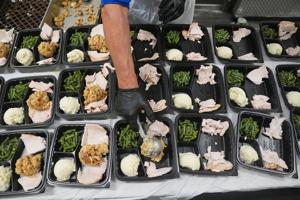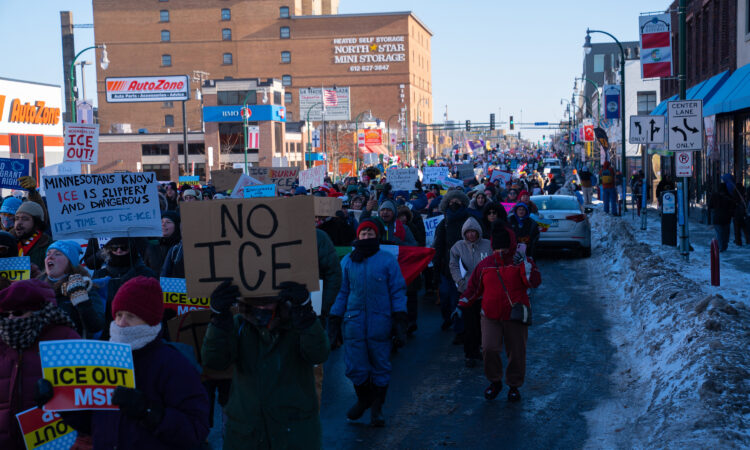Two federal judges have ruled that the Trump administration must utilize emergency reserve funds to ensure the continuation of the Supplemental Nutrition Assistance Program (SNAP) during the ongoing government shutdown. The decisions, issued on November 1, 2023, by judges in Massachusetts and Rhode Island, require the administration to either partially or fully fund SNAP, which serves approximately 41 million Americans, or about one in eight individuals in the country.
The U.S. Department of Agriculture (USDA) had previously announced plans to halt SNAP payments due to funding issues arising from the shutdown. This decision would have significantly impacted beneficiaries who typically receive their assistance at the beginning of each month. The program, which costs about **$8 billion** monthly, is a critical component of the nation’s social safety net.
Amy Klobuchar, a Minnesota Democrat and the ranking member of the Senate Agriculture Committee, emphasized the significance of the rulings. She stated, “The administration is choosing not to feed Americans in need, despite knowing that it is legally required to do so.”
Judicial Rulings Clarify Funding Obligations
The rulings were prompted by challenges from a coalition of state attorneys general and governors from **25 states** and the District of Columbia. They contended that the administration has a legal duty to maintain SNAP operations in their jurisdictions. The USDA had argued that approximately **$5 billion** in contingency funds could not be utilized for this purpose. However, the judges clarified that these funds are indeed available and necessary for the program’s continuity.
In a ruling from Rhode Island, U.S. District Judge John J. McConnell mandated that the federal government must use at least some of the contingency funds to support SNAP. He also requested a progress update by the following Monday. Judge Indira Talwani in Massachusetts echoed this sentiment, labeling the USDA’s suspension of SNAP payments as “unlawful” and ordering the government to communicate their plans for using emergency reserve funds.
Despite the judicial rulings, delays in benefit payments are still anticipated. The process of reloading SNAP cards often takes over a week in several states, leaving many beneficiaries without immediate access to food assistance.
Advocates and state officials are concerned that the abrupt shift in funding could lead to difficult choices for low-income families. The majority of states have begun implementing measures to expedite funding for food banks and find alternative ways to load benefits onto SNAP cards.
Impact on Beneficiaries and Food Assistance Programs
The uncertainty surrounding SNAP funding has left food banks and recipients anxious. Cynthia Kirkhart, CEO of Facing Hunger Food Bank, stated that her organization will extend its hours to accommodate those who rely on benefits that are now delayed. “What we know, unless the administration is magical, is nothing is going to happen tomorrow,” she remarked.
For individuals like Kristle Johnson, a full-time nursing student and mother of three in Florida, the prospect of reduced benefits raises serious concerns. With monthly benefits of **$994**, Johnson struggles to provide sufficient groceries despite her careful budgeting. “Now I have to deal with someone who wants to get rid of everything I have to keep my family afloat until I can better myself,” she said, referring to the administration’s decisions.
The ruling does not resolve the political tensions surrounding SNAP funding. During a news conference, Agriculture Secretary Brooke Rollins criticized Democrats for not ending their Senate filibuster regarding health care funding, which has complicated the situation.
As the political landscape continues to evolve, advocates for food assistance express cautious optimism following the court’s decisions. Diane Yentel, president and CEO of the National Council of Nonprofits, noted that the rulings help avert a crisis for food banks across the country.
The ongoing battle over SNAP funding highlights the critical intersection of food security and government policy in America, underscoring the importance of ensuring that no family goes hungry during times of political strife.






